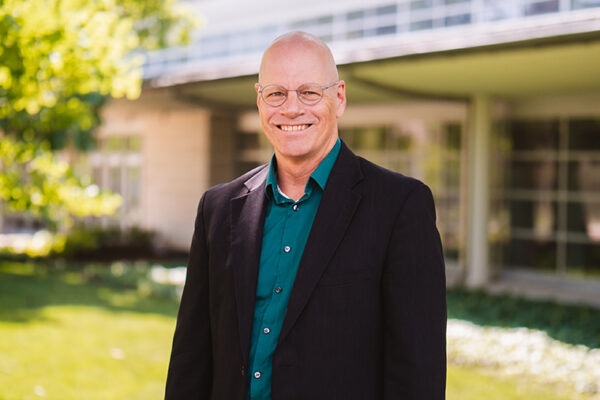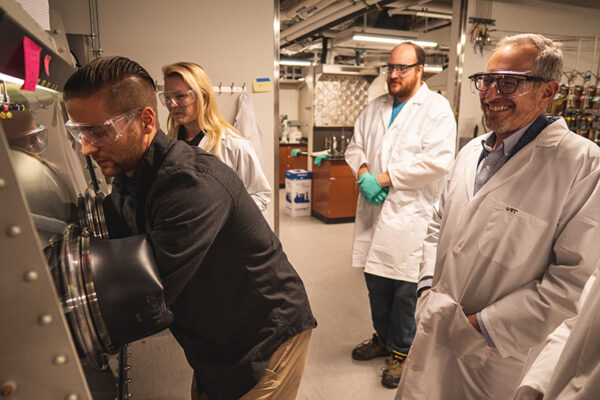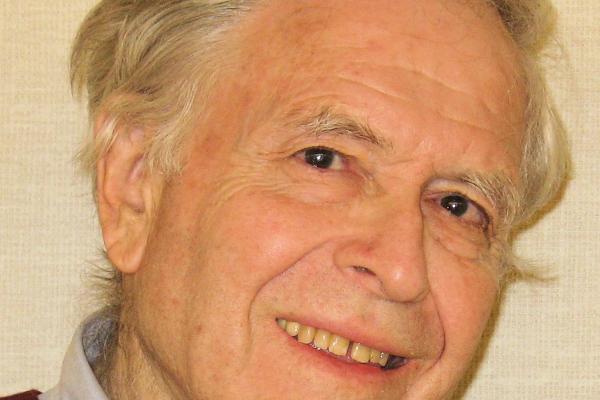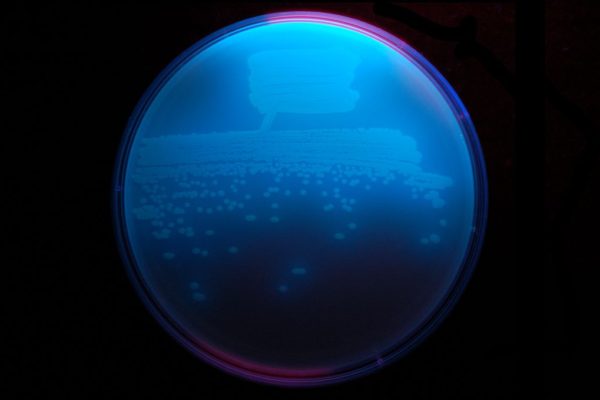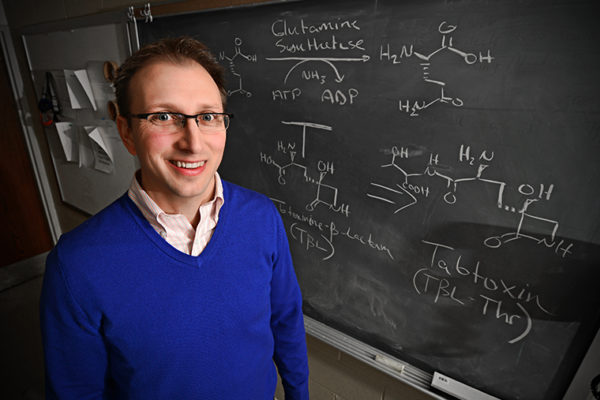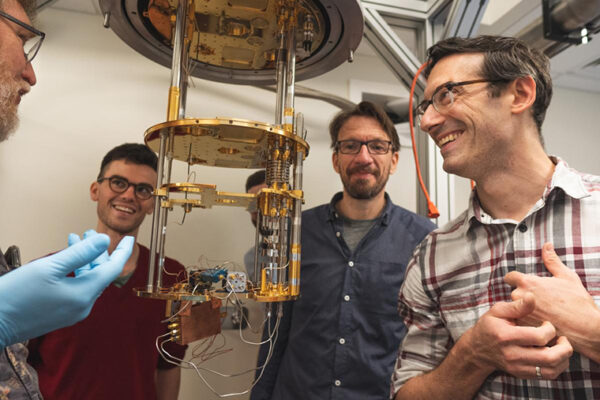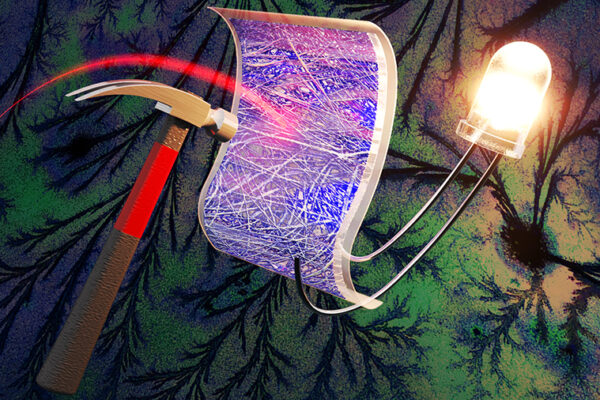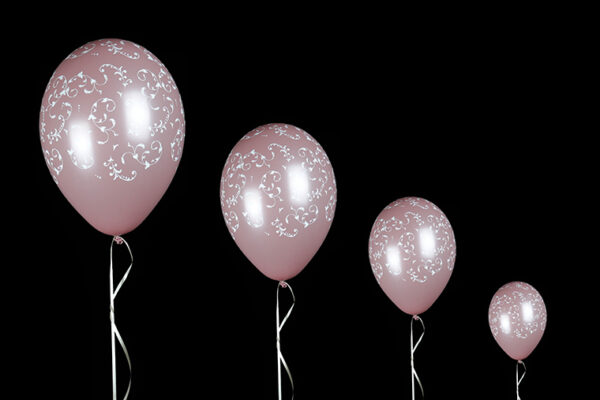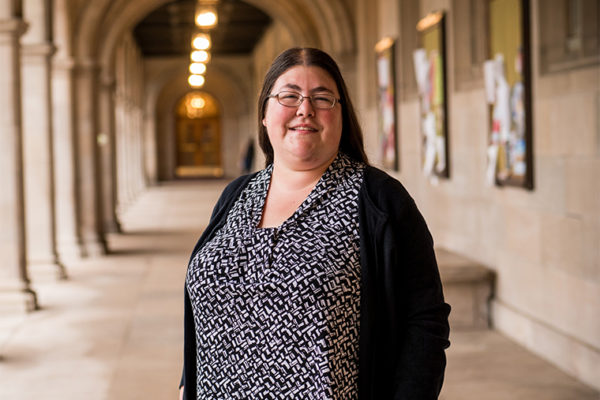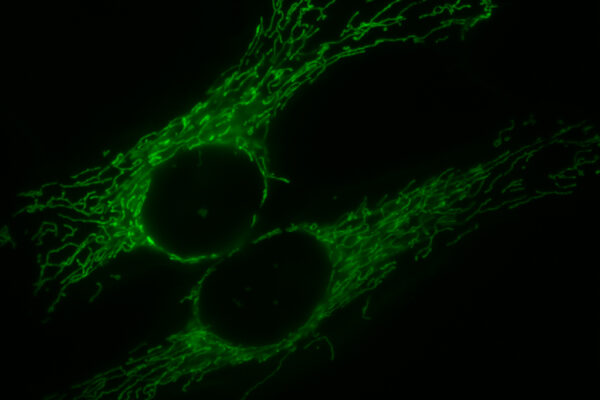Moeller recognized for excellence in organic chemistry
Kevin Moeller, professor of chemistry in Arts & Sciences, will receive a 2020 Arthur C. Cope Scholar Award for excellence in organic chemistry. The Cope Scholar Award is a national award sponsored by the Arthur C. Cope Fund and administered by the American Chemical Society. Only 10 recipients each year receive the award.
NSF Center for Sustainable Polymers grant renewed
The NSF Center for Sustainable Polymers (CSP) has been awarded a $20 million grant renewal from the National Science Foundation in support of its research. The CSP, based at the University of Minnesota, partners with researchers from around the country, including William Tolman in Arts & Sciences.
Obituary: Peter P. Gaspar, professor emeritus of chemistry, 84
Peter P. Gaspar, professor emeritus of chemistry in Arts & Sciences at Washington University in St. Louis, died Saturday, July 27, 2019, in St. Louis, following a long illness. He was 84.
First pictures of enzyme that drives new class of antibiotics
Researchers from Arts & Sciences have solved the X-ray crystal structure of the enzyme that makes obafluorin — a broad spectrum antibiotic agent made by a fluorescent strain of soil bacteria. This new class of antibiotics might provide a powerful antidote to the growing scourge of antibiotic resistance.
Chemist Wencewicz receives teacher-scholar award
Tim Wencewicz, assistant professor of chemistry in Arts & Sciences, has been recognized with a 2019 Camille Dreyfus Teacher-Scholar Award. He will use the funding for his research to help develop new antibiotics, to combat antibiotic resistance and to improve the university’s organic chemistry curriculum.
Center for Quantum Sensors tackles big questions
The university’s interdisciplinary Center for Quantum Sensors aims to harness the power of quantum mechanics to detect and decipher some of the universe’s greatest mysteries. The effort is timely as Congress recently approved a federal program supporting the development of quantum technologies.
Takes a licking and keeps on storing
Researchers in Arts & Sciences made an energy storage device that can withstand a hammer striking it more than 40 times. The shatterproof supercapacitor is also nonflammable, unlike lithium-ion batteries. The new work is the cover story of the April 23 issue of the journal Sustainable Energy and Fuels.
The global helium shortage hits home
Helium is a valuable, non-renewable resource that is critical for many medical and research applications. But helium supply and pricing are unreliable. Sophia Hayes, a professor of chemistry in Arts & Sciences, spoke at a recent American Chemical Society webinar about the need for congressional action to address these challenges.
Engineering proteins to help counter devastating diseases
Meredith Jackrel, assistant professor of chemistry in Arts & Sciences, recently received a five-year grant from the National Institutes of Health (NIH) and another from the Longer Life Foundation to study protein disaggregases — evolved protein forms that mitigate protein misfolding — as a strategy to combat neurodegenerative diseases such as Alzheimer’s, Parkinson’s and ALS.
Better together: Mitochondrial fusion supports cell division
New research from Gary Patti’s laboratory in Arts & Sciences shows that when cells divide rapidly, their mitochondria are fused together. In this configuration, the cell is able to more efficiently use oxygen for energy. This work illuminates the inner workings of dividing cells and shows how mitochondria combine to help cells to multiply in unexpected ways.
View More Stories
